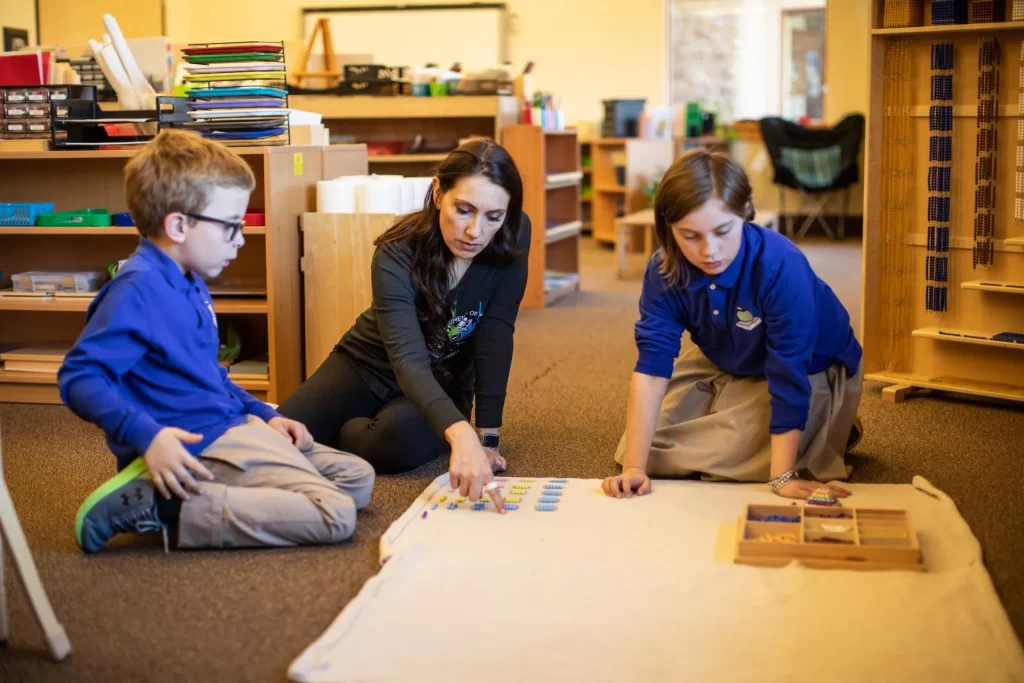
Role of Montessori teachers in a Montessori Classroom
January 11, 2024
Montessori teachers, often referred to as guides or directresses, play a unique and crucial role in the Montessori classroom. Their responsibilities extend beyond traditional teaching roles, reflecting the principles and philosophy of the Montessori method. Here are key aspects of the role of Montessori teachers:
- Observation:
- Montessori teachers are skilled observers. They closely monitor each child’s progress, interests, and challenges.
- Through keen observation, teachers can tailor lessons to individual needs and guide children in their learning journey.
- Preparation of the Environment:
- Teachers are responsible for carefully preparing the classroom environment with Montessori materials that are developmentally appropriate.
- The environment should be inviting, organized, and conducive to independent exploration and learning.
- Presentation of Lessons:
- Montessori teachers introduce children to various materials through individual or small group lessons.
- Lessons are presented in a clear and precise manner, focusing on key concepts and allowing for hands-on exploration.
- Facilitation of Learning:
- Rather than dictating information, Montessori teachers facilitate learning by encouraging curiosity and independent exploration.
- They guide children to discover answers to their questions and foster a love for lifelong learning.
- Individualized Instruction:
- Montessori classrooms often have mixed-age groups. Teachers provide individualized instruction based on each child’s unique needs, abilities, and pace of learning.
- This approach promotes a sense of community and cooperation, with older children mentoring younger ones.
- Promotion of Independence:
- Montessori teachers emphasize the development of independence and self-discipline.
- They guide children in acquiring practical life skills, such as dressing themselves, preparing snacks, and cleaning up after activities.
- Role Modeling:
- Teachers serve as positive role models, embodying qualities like respect, patience, and a love for learning.
- Through their behavior, teachers demonstrate the values and attitudes encouraged in the Montessori philosophy.
- Assessment and Record-Keeping:
- Assessment in Montessori is ongoing and includes careful observation and documentation of each child’s progress.
- Teachers maintain records to track academic, social, and emotional development.
- Parent Communication:
- Montessori teachers establish strong partnerships with parents. Regular communication and conferences keep parents informed about their child’s progress and experiences in the classroom.
- Teachers guide how parents can support Montessori principles at home.
- Creating a Peaceful Environment:
- Montessori teachers cultivate a peaceful and respectful atmosphere within the classroom.
- Conflict resolution and the development of social skills are integral parts of the teacher’s role.
- Professional Development:
- Montessori teachers engage in continuous professional development to deepen their understanding of the Montessori philosophy and stay updated on best practices.
Overall, the Montessori teacher serves as a guide and facilitator, fostering a love for learning, independence, and a sense of responsibility in each child. Their unique role is to create an environment where children can flourish and develop into confident, self-motivated learners.


